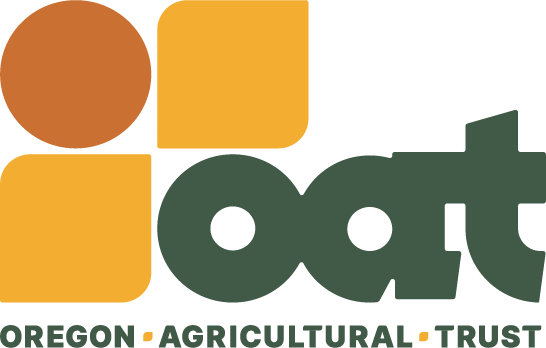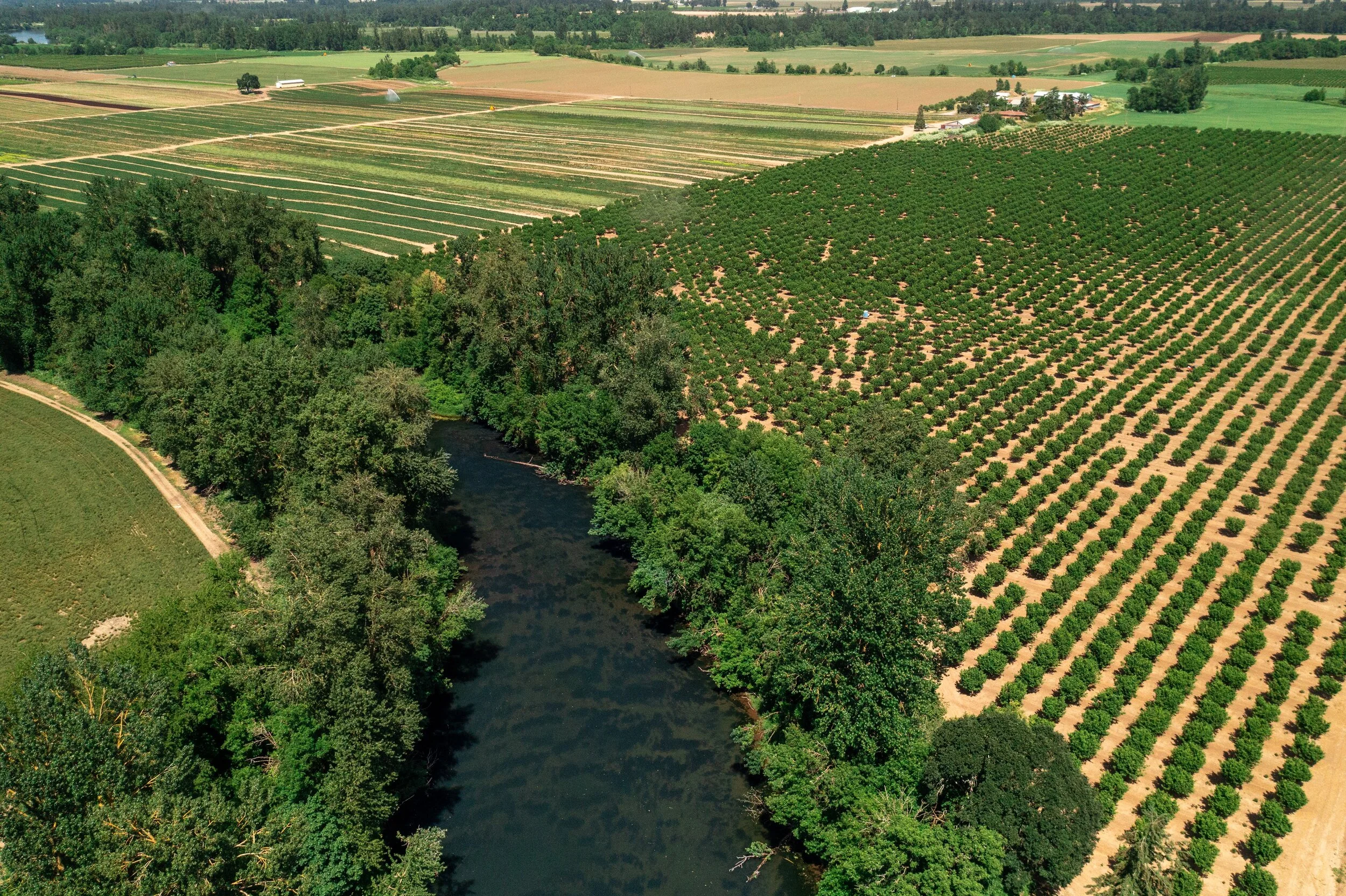When you live in a state like Oregon, or one of the many states around us, you've got a bounty of things from grain to hops to fruit and other ingredients that are used in beer. And, when you can go pick it up or get a smaller shipment from close by, and truly know the farmer, those things are great, but if we don't support and protect that ag land, we're going to be forced to get it from somewhere else and not from our home.
-Matt Van Wyk, Alesong Brewing & Blending
Alesong Brewing & Blending creates barrel-aged beers
Communications Manager Sal Lopez spoke with Matt Van Wyk of Alesong Brewing and Blending who shared some of the inspiration for Alesong’s barrel-aged beers as well as some of the local ingredients they use that infuse the beer with an Oregon flavor.
SL - What is the vision of Alesong? What inspired you to create it?
MVW – The mission of Alesong is to elevate the way beer is perceived and experienced. We are inspired by farmhouse beers of Belgium and also the Lambic ale tradition, which is typically blends of one-, two- and three-year-old beer. We don't have a lot of beer that's aged for three years, because we're not a Lambic brewery. But our beer probably stays in barrel for at least a year in most cases. It takes a while to make, age, and then bottle condition the beer. Finally, we blend different beers because we believe the sum of the parts is greater than the individual components that make it up. Like a song, the beer is our art and the interpretation is yours.
Alesong founders Matt Van Wyk, Doug Coombs and Brian Coombs
SL - What are some of the Oregon-grown ingredients you like to use in Alesong’s beer?
MVW - We've been working with a few different places lately, namely Skagit Valley Malting, up in Washington, who's not malting anymore. But they had some malt that was grown in Oregon at Goschie Farms. We also have a place locally in Junction City called Camus Country Mill. They're the Hunton family Farm. Most of it isn't malted (germinated, dried, and roasted); it's either raw grains or flaked products. But with farmhouse beers, we can use a lot of those ingredients to put some of that local grain in there. And we use some imported ingredients too, but we try to get as much locally as we can.
We also use a lot of fruit for our fruited sour beers. We'll get cherries from the Hood River Valley. Just next door to us is King Estate Winery. They're one of the largest wineries in the state and they have a huge biodynamic farm that grows a lot of different fruits. We've used raspberries from them, blueberries, plums, and we also use their grapes in our beer.
SL - Is there any producer you work with where you say, “Hey, we'd like to make this type of beer” - how do you work with them to get the product you want to use?
MVW - I mention King Estate and other fruit producers around the state because we can go to them and say, “We’d like this ingredient at this ripeness level.” But if you just order from somewhere and they say, “Okay, I'll get you a pallet of peaches”, for example, a lot of times you're working with fruit that some of it is ripe, some of it is not, and you are waiting to process it to put it into beer, because it's not all ripe at the same time. And because we can work with our neighbors next door, and we have a good relationship with the grower, we can go talk to them.
In fact, we recently made a Flemish red ale with raspberries. King Estate harvested the raspberries only when they were at their peak ripeness and put them in the freezer for us. They were ripening at different times throughout that harvest season. We just grabbed them all after they were frozen. And so instead of getting some raspberries that are tart and some of them are sweet and juicy, we got them all at the same ripeness and put them into beer at the same time. It made a big difference on the outcome of the beer. So, I think that local touch with the farmer is huge. It really shows in the quality of the beer in the end. You can make good beer in many different ways. But when you can get your ingredients at their best, that's key for us.
SL - How do you see agricultural land protection as important to the beer industry and people who love beer?
Alesong Brewing & Blending in Eugene, Oregon
MVW - It is huge for us. It’s getting so hard, in every manufacturing business right now, with the economy the way it is, the price of raw materials is going up. And that goes for agricultural products as well. And so the farther you have to get those ingredients from, the more you're going to pay shipping and other costs. There are some great malts in the UK and in Germany, and of course we can get hops from over there. And we have distributors to sell us that stuff. But the costs keep rising and rising and rising.
When you live in a state like Oregon, or one of the many states around us, you've got a bounty of things from grain to hops to fruit and other ingredients that are used in beer. And, when you can go pick it up or get a smaller shipment from close by, and truly know the farmer, those things are great, but if we don't support and protect that ag land, we're going to be forced to get it from somewhere else and not from our home.
So I think the first step is to make sure these farmers, a) have the land and, b) have a customer to be able to grow those things for. And that's good for us, and it's good for the consumers drinking our beer too.
Alesong’s Cheers to the Land beer is a tart farmhouse ale with Oregon grown Rhubarb. They are hosting a Cheers to the Land beer release party on Monday, October 9. Come out and celebrate this wonderful collaboration beer and Oregon agriculture!





